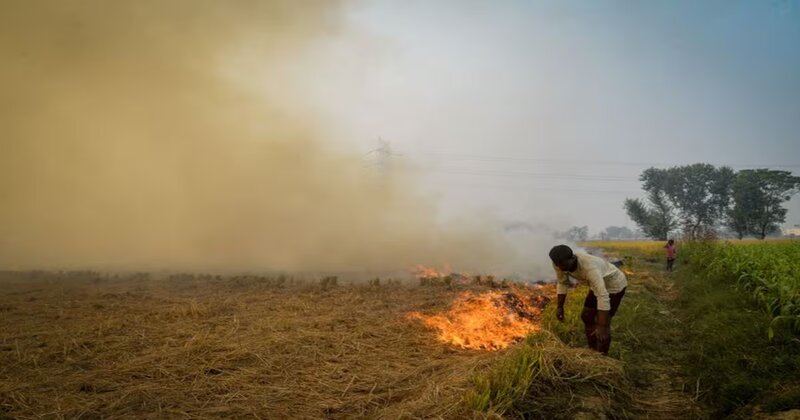
In the past seven years, stubble-burning incidents in Uttar Pradesh have dropped by 46%, attributed to the Yogi government’s strict policies and incentive-driven initiatives. Data shows that cases of stubble burning fell from 8,784 in 2017 to 3,996 in 2023. The government has focused on educating farmers about the negative impact of stubble burning and promoting alternatives like composting and using seed drills to sow wheat directly into stubble. Additionally, bio-decomposers have been distributed, and a Rs 15,000 fine is imposed for stubble burning.
Burning stubble not only harms future crops by destroying essential nutrients like nitrogen, phosphorus, and potash (NPK) but also eliminates billions of beneficial soil bacteria and fungi. Research indicates that composting stubble instead of burning it can reduce fertilizer needs by up to 25%, thereby lowering farming costs and boosting profits. Preserving organic materials in the soil also protects the environment and mitigates global warming.
A study by the Gorakhpur Environmental Action Group highlights that burning stubble in one acre causes the loss of 400 kg of carbon and billions of beneficial microbes. Composting crop residues improves soil moisture retention and enhances the activity of microorganisms, reducing the need for irrigation and cutting water costs. Proper stubble management involves plowing it into the soil, irrigating, and applying urea or specific cultures to speed up decomposition.

Post Your Comments